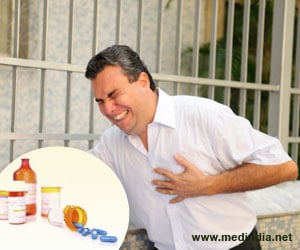Every 5kg decline in grip strength or muscle strength was associated with a 16 percent increased risk of death due to any cardiac or other ailments.

The study also found that grip strength is a stronger predictor of death than systolic blood pressure, and the authors suggest that it could be used as a quick, low-cost screening tool by doctors or other healthcare professionals to identify high-risk patients among people who develop major illnesses such as heart failure and stroke.
The current study followed 139,691 adults aged between 35 and 70 years living in 17 countries from the Prospective Urban-Rural Epidemiology (PURE) study for an average (median) of four years. Grip strength was assessed using a handgrip dynamometer.
The findings show that every 5kg decline in grip strength was associated with a 16 percent increased risk of death from any cause; a 17 percent greater risk of cardiovascular death; a 17 percent higher risk of non-cardiovascular mortality; and more modest increases in the risk of having a heart attack (7 percent) or a stroke (9 percent).
These associations persisted even after taking into account differences in other factors that can affect mortality or heart disease such as age, education level, employment status, physical activity level, and tobacco and alcohol use.
Low grip strength was linked with higher death rates in people who develop cardiovascular (eg, heart attack or stroke) and non-cardiovascular diseases (eg, cancer), suggesting that muscle strength can predict the risk of death in people who develop a major illness.
 MEDINDIA
MEDINDIA




 Email
Email










